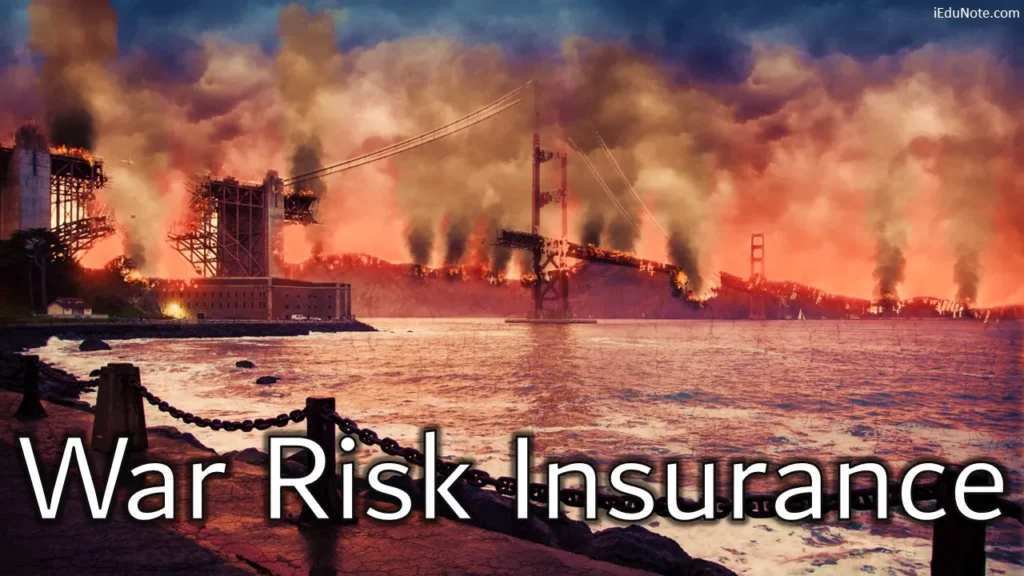An insurance policy known as “war risk insurance” shields the policyholder from financial harm caused by occurrences including invasions, insurrections, riots, strikes, revolutions, military coups, and terrorism.
War exclusions are frequently seen in auto, home, renter, business property, fire, and life insurance policies. The coverage will not cover losses resulting from incidents connected to war due to these exclusions. It is occasionally possible to buy a separate war risk insurance rider since a basic insurance policy may expressly exclude war risk.

Knowledge of War Risk Insurance
Good consumers for war risk insurance are those organizations who are exposed to the threat of abrupt and severe political upheavals. For instance, businesses operating in politically tense regions of the world face a higher chance of suffering losses from armed conflict. Kidnappings and ransom, sabotage, emergency evacuation, worker injury, long-term disability, and loss or damage to property and goods are some of the risks that war risk insurance may cover.
War-related event cancellations may also be covered by some plans. Although some war risk insurance policies cover terrorism, others see terrorism and conflict as two distinct types of threat. Before using their airports or operating in their airspace, certain nations may demand that airlines obtain war risk insurance.
Aviation and maritime sectors may have more specialized war insurance alternatives catered to their unique requirements. For instance, in the event that a government seizes a ship, war risk insurance may be able to reimburse the owner for the whole cost of the ship. War risk insurance may compensate for the time lost if military operations require a ship to be temporarily impounded.
Questions About War Insurance
After the September 11, 2001, terrorist attacks in New York City and Washington, D.C., the war exclusion clause became a contentious topic in the insurance industry. An estimated $40 billion in insurance losses resulted from the attacks. The insurance sector was wary of issuing war risk policies due to the possibility of additional terrorist strikes or hijackings.
Many third-party policies and coverage were canceled by insurers. In response, the Federal Aviation Administration’s (FAA) Aviation War Risk Insurance Program was amended and expanded by Congress. The FAA was mandated by law to provide war risk insurance to airlines with U.S. bases. It also mandated that the pre-9/11 cost of coverage be used as the basis for the premiums for this insurance. The program lasted until 2014, by which time the private sector had expanded its capacity and brought war risk insurance premiums down.
The challenge with war risk insurance is that an insurance company cannot determine the right rates to charge by accurately estimating the potential outcome of damages. Furthermore, even large premiums might not be sufficient to pay the harm that insurance companies are responsible for because the damage from war or other associated activities might be so extensive and unpredictable. Because of the significant likelihood that a war insurance policy will cause an insurance company to go bankrupt, war insurance is an uncharted territory for them.










